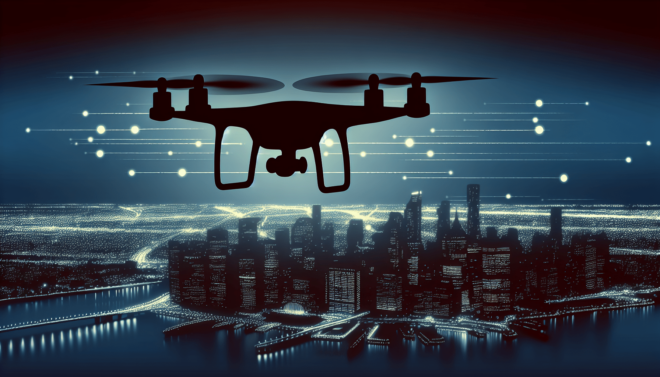Introduction
You may be wondering how the proposed drone ban relates to national security concerns. In this article, we will delve into the reasons behind the proposed ban and the potential impact it could have on national security. Let’s explore this topic together!
What is the Proposed Drone Ban?
The proposed drone ban refers to government regulations or restrictions on the use of drones in certain areas or for specific purposes. This can include limitations on where drones can be flown, who can operate them, and how they can be used.
Why is the Proposed Drone Ban Being Considered?
The proposed drone ban is being considered for a variety of reasons, including concerns about public safety, privacy, and national security. Drones have become increasingly popular in recent years, with more and more individuals and organizations using them for a wide range of purposes. However, this has also raised concerns about the potential misuse of drones and the risks they pose to society.
The Relationship Between Drones and National Security
Drones have become an integral part of modern warfare and national security operations. In recent years, they have been used for surveillance, reconnaissance, and targeted strikes in conflict zones around the world. However, the proliferation of drones has also created new challenges for national security agencies, as they seek to protect against potential threats posed by these unmanned aircraft.
How Drones Pose a Threat to National Security
Drones can pose a number of threats to national security, both in terms of physical security and data security. In terms of physical security, drones can be used to carry out attacks on critical infrastructure, such as airports, power plants, and government buildings. They can also be used to conduct surveillance on sensitive locations and gather intelligence on potential targets.
The Risks of Unauthorized Drone Use
One of the biggest concerns surrounding drones and national security is the risk of unauthorized drone use. In recent years, there have been numerous incidents of individuals flying drones in restricted airspace, near airports, and over government buildings. This has raised fears about the potential for drones to be used by terrorists or other malicious actors to carry out attacks or gather intelligence.
The Need for Regulation
In order to address these risks, many governments around the world have implemented regulations on the use of drones. These regulations typically restrict where drones can be flown, how high they can go, and what they can be used for. They also often require drone operators to obtain licenses or permits before flying their drones in certain areas.
The Potential Impact of a Drone Ban on National Security
While a drone ban may seem like a simple solution to the risks posed by drones, it can have a significant impact on national security operations and capabilities. In this section, we will explore the potential consequences of a drone ban on national security efforts.
Limiting Surveillance and Reconnaissance Capabilities
One of the main ways that drones are used in national security operations is for surveillance and reconnaissance. Drones can be used to monitor enemy movements, gather intelligence on potential threats, and track the activities of hostile groups. A ban on drones could limit the ability of national security agencies to gather this critical information, making it harder to detect and thwart potential threats.
Restricting Targeted Strike Capabilities
In addition to surveillance and reconnaissance, drones are also used for targeted strikes against enemy combatants and high-value targets. These targeted strikes can be an effective way to eliminate threats without putting troops in harm’s way. However, a ban on drones could restrict the ability of national security agencies to carry out these strikes, potentially allowing threats to go unchecked.
Increasing Reliance on Other Technologies
If drones are banned, national security agencies would need to rely on other technologies to fill the gap left by the absence of drones. This could involve using manned aircraft, satellites, or ground-based reconnaissance systems to carry out surveillance, reconnaissance, and targeted strikes. However, these alternative technologies may not be as effective or efficient as drones, leading to potential gaps in national security capabilities.
Balancing Security Concerns with Civil Liberties
While national security concerns are a top priority for governments around the world, it is also important to balance these concerns with civil liberties and individual rights. In this section, we will explore the importance of striking the right balance between security and privacy.
Protecting Privacy Rights
One of the main concerns with drones is the potential for them to infringe on individuals’ privacy rights. Drones can be equipped with cameras and other sensors that allow them to capture images and audio of people in public and private spaces. This has raised fears about the erosion of privacy rights and the potential for government surveillance to overreach.
Ensuring Accountability and Transparency
In order to protect privacy rights and address concerns about government surveillance, it is important to ensure that national security agencies are held accountable for their use of drones. This can involve implementing strict oversight mechanisms, requiring agencies to obtain warrants before conducting drone surveillance, and ensuring that individuals are notified when they are being monitored.
The Role of Civil Liberties Advocates
Civil liberties advocates play a crucial role in ensuring that national security policies strike the right balance between security and privacy. These advocates work to raise awareness about the risks posed by drones, push for stronger privacy protections, and hold government agencies accountable for their use of surveillance technologies. By working together with government officials and other stakeholders, civil liberties advocates can help to shape policies that protect both national security and individual rights.
Conclusion
In conclusion, the proposed drone ban is a complex issue that raises important questions about national security, privacy, and civil liberties. While drones have become an integral part of modern warfare and national security operations, they also pose significant risks that must be addressed. By carefully considering the potential impact of a drone ban on national security capabilities, as well as the need to protect privacy rights and individual liberties, governments can develop policies that strike the right balance between security and freedom. Thank you for joining us on this exploration of the proposed drone ban and its relation to national security concerns.

